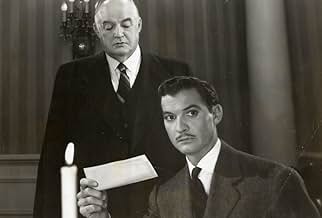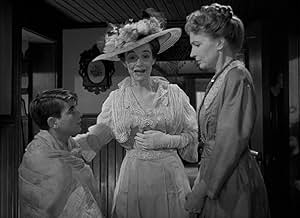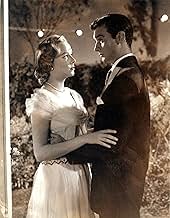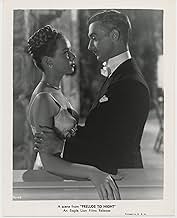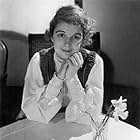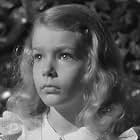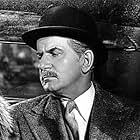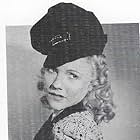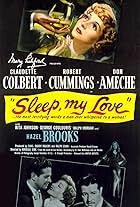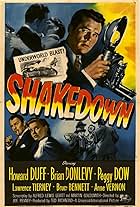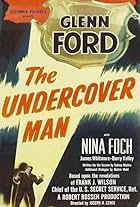IMDb RATING
6.8/10
1.5K
YOUR RATING
A poor boy who saved a rich girl from drowning is adopted by her family, but he grows into a money-hungry ruthless businessman who would step on others to get to the top of the social ladder... Read allA poor boy who saved a rich girl from drowning is adopted by her family, but he grows into a money-hungry ruthless businessman who would step on others to get to the top of the social ladder.A poor boy who saved a rich girl from drowning is adopted by her family, but he grows into a money-hungry ruthless businessman who would step on others to get to the top of the social ladder.
Robert J. Anderson
- Horace Vendig as Child
- (as Bob Anderson)
Frederick Worlock
- J. Norton Sims
- (as Fred Worlock)
Storyline
Did you know
- TriviaBuck Mansfield quotes twice from the Bible. The first occasion is when he is being pursued by his creditors and he reads from Proverbs 31:10 -12 and 21 (...Who can find a virtuous woman? For her price is far above rubies....). The second instance is when he speaks to the bartender at Vendig's function and the quote is from Obadiah 1: 2-4 (...Though you set your nest among the stars, From there I will bring you down ...).
- Quotes
Mrs. Burnside: [to unhappy young Horace] Be brave. Be a man.
Horace Vendig as Child: I don't want to be a man. Never! I wish there weren't any men in the whole world.
- ConnectionsReferenced in Let's Go to the Movies (1949)
Featured review
This may be Edgar G. Ulmer's masterpiece. RUTHLESS is a terrific noir/melodrama - sharply written (by the to-be-blacklisted Alvah Bessie and Gordon Kahn), consistently beautifully photographed (by the underrated Bert Glennon), and truly adventurous in its editing and flash forward-flash backward construction.
Zachary Scott is the "ruthless" title character, but the title is more a cheap shot than anything else; Scott's Vendig is more an emotionally bankrupt, pathological character than a villain per se. The narrative takes pains to reveal - gradually - the series of events from childhood through adulthood which affected his perverse makeup, making for a fascinating character study. Subtle revelations and plot twists come about every fifteen minutes, but they're deliberately ambiguous when they hit the screen, forcing the viewer to pay close attention as the truth of the situation is revealed. This technique alone puts RUTHLESS way ahead of any other Poverty Row melodrama of the period and cements Ulmer's reputation as a thoughtful stylist.
Louis Hayward plays a sort of Greek chorus, an often acquiescent voice of conscience/best friend/nemesis who keeps the episodic story moving along. Diana Lynn (in two roles), Martha Vickers and Lucille Bremer each give terrific performances as the various women who appear, disappear, and reappear in the lives of both men. All are sharply drawn, a testament to the determination of Bessie, Kahn and other blacklisted writers to put strong female characters on screen in defiance of the Production Code, which seemed to encourage either submissive or predatory roles for women.
And as if all that isn't enough, Sidney Greenstreet drops in and sets the screen on fire in every sequence he appears in. A classic coiled spring, his portrayal of a similarly greedy corporate boss is perfectly slimy, and provides a genuine shock when he suddenly grabs Lucille Bremer by the hair and jerks her backwards for a kiss. Likewise, a later sequence where Bremer drags him in front of the mirror so she can brutally compare him to her new, younger lover is unforgettably painful.
RUTHLESS sits comfortably alongside DETOUR, THE MAN FROM PLANET X and THE STRANGE WOMAN, other Ulmer gems of note. A great movie.
Zachary Scott is the "ruthless" title character, but the title is more a cheap shot than anything else; Scott's Vendig is more an emotionally bankrupt, pathological character than a villain per se. The narrative takes pains to reveal - gradually - the series of events from childhood through adulthood which affected his perverse makeup, making for a fascinating character study. Subtle revelations and plot twists come about every fifteen minutes, but they're deliberately ambiguous when they hit the screen, forcing the viewer to pay close attention as the truth of the situation is revealed. This technique alone puts RUTHLESS way ahead of any other Poverty Row melodrama of the period and cements Ulmer's reputation as a thoughtful stylist.
Louis Hayward plays a sort of Greek chorus, an often acquiescent voice of conscience/best friend/nemesis who keeps the episodic story moving along. Diana Lynn (in two roles), Martha Vickers and Lucille Bremer each give terrific performances as the various women who appear, disappear, and reappear in the lives of both men. All are sharply drawn, a testament to the determination of Bessie, Kahn and other blacklisted writers to put strong female characters on screen in defiance of the Production Code, which seemed to encourage either submissive or predatory roles for women.
And as if all that isn't enough, Sidney Greenstreet drops in and sets the screen on fire in every sequence he appears in. A classic coiled spring, his portrayal of a similarly greedy corporate boss is perfectly slimy, and provides a genuine shock when he suddenly grabs Lucille Bremer by the hair and jerks her backwards for a kiss. Likewise, a later sequence where Bremer drags him in front of the mirror so she can brutally compare him to her new, younger lover is unforgettably painful.
RUTHLESS sits comfortably alongside DETOUR, THE MAN FROM PLANET X and THE STRANGE WOMAN, other Ulmer gems of note. A great movie.
- Howard_B_Eale
- Feb 19, 2009
- Permalink
- How long is Ruthless?Powered by Alexa
Details
- Runtime1 hour 44 minutes
- Color
- Aspect ratio
- 1.37 : 1
Contribute to this page
Suggest an edit or add missing content


